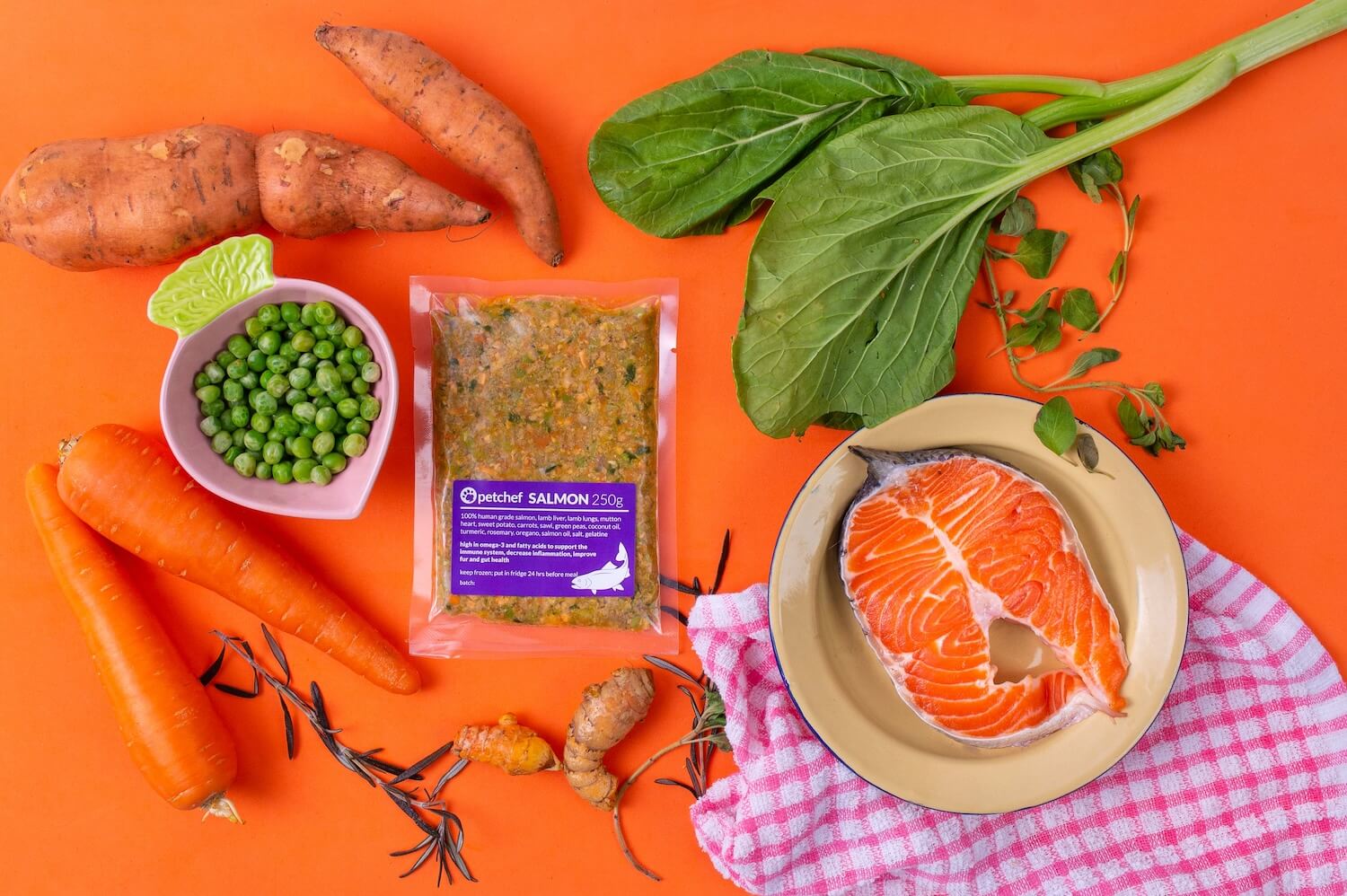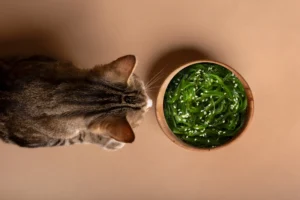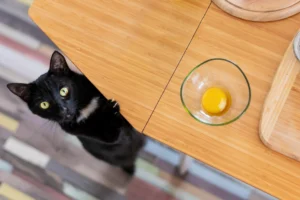Disclaimer: Always check with your vet on what “human foods” your cat can and cannot eat as information may vary based on their dietary needs and health conditions.
Many cats may seem to be drawn to cheese because of its rich smell and taste due to its fat content, which can be appealing to cats, especially since they are obligate carnivores who naturally crave fatty foods. While some cats might beg for cheese, others might sniff it and walk away. Cats have individual preferences, and some aren’t fans of dairy at all.
Read on to learn more about whether cheese is actually good for cats, how much should they be eating and more.
Table of Contents
Is cheese good for cats?
The good news is that cheese isn’t deathly bad for cats.
The realistic news is that cats can eat cheese in small amounts, but it’s not ideal for their diet as many adult cats can’t digest lactose. This would potentially lead to stomach upset, diarrhoea or gas.
If you really MUST give your cats the experience of trying cheese, opt for cheeses that have lower lactose levels (eg: Hard Cheeses like Cheddar, Parmesan and Swiss) or are lactose-free if your cat tolerates dairy.
Is cheese bad for cats?
Cheese is not inherently good for cats and doesn’t provide any significant nutritional benefits to them.
Here’s why:
Lactose intolerance
Most adult cats are lactose intolerant, and eating cheese can cause digestive issues like diarrhoea, gas, or an upset stomach.
High fat content
Cheese is calorie-dense, and too much fat can lead to obesity or pancreatitis in cats.
Salt levels
Many cheeses are high in sodium, which can strain a cat's kidneys over time.
Not species-appropriate
Cats are obligate carnivores, meaning their bodies are designed to thrive on animal proteins, not dairy or plant-based foods.
Which is why at Petchef, we ensure that all the ingredients that go into your cat’s meal is made for obligate carnivores! All the meals tailored for cats contain:
80% meat (chicken, buffalo, beef, salmon or tuna)
7% vegetables and 3% oils for additional beneficial nutrients
10% Moisture from nourishing broths
It’s completely free of preservatives, additives, fillers and grains! If you’d love for your cat to eat the food they were born to eat, come have a chat with our friendly pet nutritionist to find the ideal meal for your pet
Cheeses that are high in lactose, salt, fat and additives can be harmful to cats, such as:
Soft cheeses
Cream cheese, Brie, Camembert
Processed cheeses
American cheese slices or cheese spreads (contain additives, preservatives, and artificial flavours).
Blue cheeses
Gorgonzola, Roquefort, or Stilton (contain mould cultures, which are toxic to cats).
Spicy or Flavoured cheeses
Those with garlic, onion, chives, or spices can be toxic to cats.
How much cheese can a cat eat?
A small piece (pea-sized or smaller) given as an occasional treat or to hide medication in (with your vet’s advice of course). If your cat doesn’t seem to tolerate it well, skip the cheese entirely and stick to feline-friendly treats.
How to tell when a cat has had too much cheese?
If your cat has had too much cheese, it might show signs of discomfort due to lactose intolerance or digestive upset. Here are the common symptoms to watch out for:
- Digestive upset: one of the most common reactions to cheese (especially if your cat is lactose intolerant) is diarrhoea.
- Vomiting: if the cheese upsets your cat’s stomach, they might vomit shortly after eating it.
- Gas or bloating: a bloated belly or excessive gas might indicate that the cat is having trouble digesting the cheese.
- Lethargy: if your cat feels unwell after eating cheese, they might become more tired than usual or avoid their normal activities.
- Stomach discomfort: Cats may also exhibit signs of stomach pain, such as excessive grooming, meowing, or trying to hide.
If your cat shows any of these signs, keep them hydrated and avoid offering any more dairy or treats for a day or two. If symptoms are severe or don’t resolve within 24 hours, it’s best to consult your vet for advice.
How often can cats eat cheese?
A pea-sized or smaller piece of cheddar or parmesan, no more than once a week.
How to keep my cat AWAY from cheese?
Cats are naturally curious, so keeping them away from your cheese can be a challenge. Here are some practical tips to keep your curious cat from stealing your cheese:
1.
Store cheese out of reach
Keep cheese (and other human food) in sealed containers or in the fridge when not in use.
Avoid leaving cheese out on counters or tables where your cat can jump up to reach it.
2.
Use positive reinforcement
Redirect attention
When your cat shows interest in cheese, offer them an alternative treat or toy to redirect their focus.
Reward good behavior
Give your cat a small, cat-safe treat when they leave the cheese alone, reinforcing that ignoring the cheese is a good behaviour.
3.
Create a "No-access" zone
If you’re preparing food or eating cheese, make sure your cat is in another room or area. You can use baby gates, closed doors, or playpens to keep them out of the kitchen or dining space.
4.
Use deterrents
Scent deterrents
Cats dislike certain scents, like citrus or vinegar. You can use citrus-scented sprays or place citrus peels near the cheese to deter them from sniffing around it.
Taste deterrent
Some commercial sprays are designed to taste bitter and discourage cats from chewing on things they shouldn’t, but this can be tricky if you use it on food surfaces.
5.
Maintain a balanced diet
Ensure your cat’s meals are nutritious and satisfying so they don’t feel the need to seek out human food.
Keep them well-fed with treats specifically designed for cats to reduce their curiosity about what you’re eating.
6.
Training
Training your cat with the "leave it" command can help in situations where you don’t want them to go for cheese or other food.
Be consistent and patient; cats can learn to avoid certain foods with time and repetition.
By setting boundaries and providing alternatives, your cat will hopefully be less interested in snacking on cheese!











